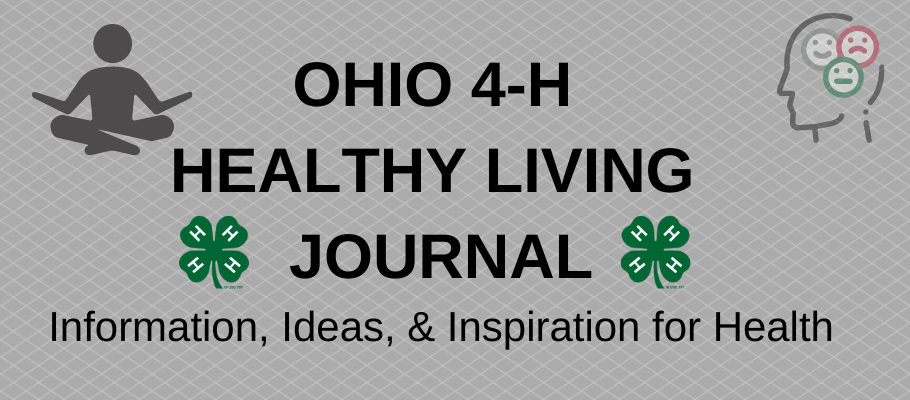All the recent events and how people have responded have me thinking about a lot of things. I wondered what 4-H’ers had done during other times of national crisis, and how what happened in the past might help us learn how young people can take control in our present time of pandemic. First let’s take a look at what 4-H’ers did during World War II.
A Look at the Past
The 4-H History Preservation webpage documents how 4-H’ers supported the war effort during World War II.

4-H member with corn plant in her Victory Garden
They sold war bonds and grew victory gardens. To raise money to buy war equipment, planes, ships, and ambulances, they collected and sold scrap metal, rubber, and phonograph records. They even collected milkweed pods, collecting enough to stuff 1 million life jackets – no small effort!
There’s even a reference to efforts of Ohio 4-H members on the 4-H history page:
“Winding up 1943 outstanding war services, Ohio 4-H members and leaders purchased $510,041 in War Bonds for which a four-motored flying fortress heavy bomber aircraft was purchased and christened “Buckeye 4-H” at Lockbourne Air Base [now Rickenbacker Air National Guard Base near Columbus] in a special ceremony at which Ohio Director of Extension H. C. Ramsower presided. Junior Stuckey, Circleville, and Betty Brandt, Rushville, spoke for 4-H members. Lt. Dick Brandt, brother of Betty and a former 4-H’er, also participated. He was on furlough after having completed 50 bombing missions over Africa, Sicily, and the Continent.”
From these examples, we see that 4-H’ers were asked to do things, things that involved something outside themselves. They felt like they we doing their part to contribute to the war effort. They could see the tangible results of their efforts. These efforts could be measured – in pounds of scrap metal collected, number of planes sponsored, or amount of vegetables grown. I am sure that if asked, today’s 4-H’ers would do the same.
The Present Pandemic
Enter the coronavirus pandemic. What’s the difference compared with other times of national crisis? It seems like we’re being asked to stop doing things – stay home; no group activities like club meetings, graduations, or birthday parties; stop seeing friends. If we’re going to help, we think we should be doing something more active. We are being asked to do things, but they are more self-focused, at least on the surface. But if you look deeper, we’re being asked to do these things to protect not just ourselves, but to protect others. It’s harder to measure these things. But it’s part of our collective responsibility to our community, country, and world.
What can YOU do?
At times like this, it’s easy to feel out of control. But you have control over your behavior. Here are actions you can take:
- Wash your hands with soap and water, for at least 20 seconds. (See Callia’s hand washing video here.)
- If soap and water are not readily available, use a hand sanitizer that contains at least 60% alcohol.
- Cover sneezes and coughs.
- Wear a mask or face covering over your nose, mouth, and chin when out in public. (Go to the Ohio Department of Health for a mask checklist.)
- Keep a physical distance of 6 feet from others when out in public, even if you’re wearing a face covering.
- Stay at home when you are sick.
- Avoid contact with people who are sick.
- Avoid touching your eyes, nose, or mouth with unwashed hands or after touching surfaces.
- Keep high-touch surfaces clean (e.g., doorknobs, light switches).
- Stay connected to others virtually.
- Spend time in outdoor recreation.
- Keep a positive attitude and practice self-care (see our recent post on this topic).
There are other things 4-H’ers can do. In one of our previous posts, we featured 4-H’ers using their sewing skills to make masks to donate. Others are making signs or videos to thank essential workers in their community or writing cards to residents living in senior centers. Camp counselors are working on ways to do virtual camps this summer. These things are important too.

4-H’er’s from Morgan County did a photo collage to thank essential workers

Cards made by 4-H’ers from Columbiana County

Brown County 4-H’ers displaying their signs thanking essential workers

4-H’ers and friends from Wood County thank essential workers
Some day in the future the coronavirus pandemic will be behind us, part of history, a story to tell your grandchildren. As with other times of national crisis, what will be the story others will read about what 4-H’ers did during this time of pandemic? YOU can be part of writing that story. You can commit to using your head, heart, hands, and health to keep yourself and others safe.
Yours in health,










